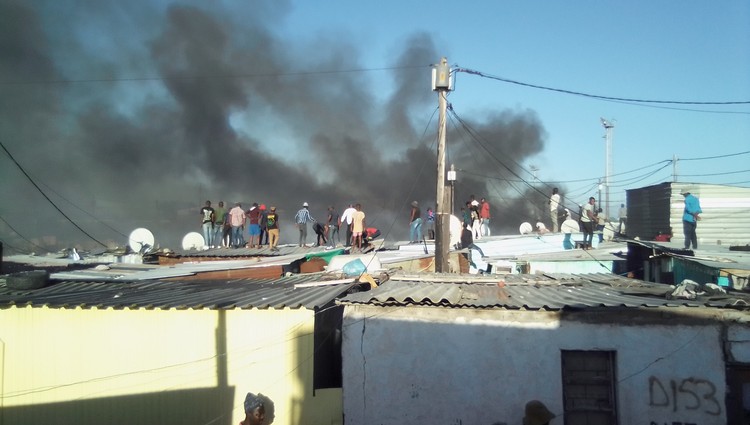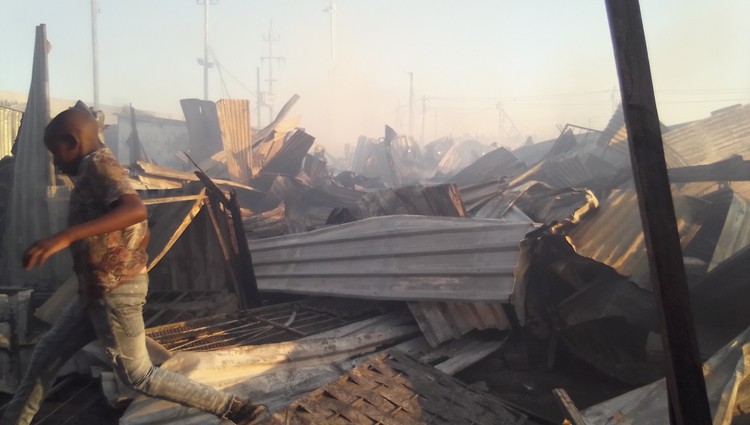Community blames loadshedding for fire that left 300 people homeless
City says no evidence points to loadshedding as a cause for the blaze but cautions residents to switch off appliances during these times.
More than 300 people are homeless after a fire destroyed their shacks at Never never informal settlement in Philippi East, Cape Town at 4:20pm on Wednesday. Photos: Sandiso Phaliso
Over 300 people are homeless after a fire gutted their shacks at Never-Never informal settlement in Philippi East, Cape Town on Wednesday afternoon.
Residents believe loadshedding to be the cause behind the fire, however fire and rescue say there is not enough evidence to show this. No injuries were reported.
The fire victims said they lost their belongings including IDs, passports, school stationery and uniform as well as all their furniture.
Thumeka Mninzi said she returned from work to find her home completely gutted. “All I am left with is what I’m wearing. I don’t know how I’m going to start afresh. This fire is devastating,” she said.
Lungelo Lisa said, “If it was not for loadshedding, we would not be without our homes. One of our neighbours left a stove on while cooking when loadshedding started. When the electricity came back on, the stove was on and a fire started.”
Police referred all our questions regarding the fire to the City of Cape Town.
A child walks through the rubble where many shacks were gutted in a fire on Wednesday afternoon.
City Disaster Risk Management spokesperson Charlotte Powell told GroundUp the blaze destroyed 130 dwellings and 333 persons have been affected.
Jermaine Carelse, spokesperson for Fire and Rescue Service, said they received the call at 4:20pm and firefighters only managed to extinguish the blaze at 10pm. He said there was no evidence that loadshedding had caused the fire but urged residents to be cautious and to ensure their appliances are switched off during these times.
Never-Never residents are now pleading with the government to relocate them because the area is overcrowded and there are no formal roads or storm water drainage. The only communal sanitation facilities are water taps and toilets.
Support independent journalism
Donate using Payfast

Don't miss out on the latest news
We respect your privacy, and promise we won't spam you.
Next: Will a State of Disaster fix the electricity crisis? An engineer weighs in
Previous: Social housing in South Africa is in trouble - here’s why
© 2023 GroundUp. This article is licensed under a Creative Commons Attribution-NoDerivatives 4.0 International License.
You may republish this article, so long as you credit the authors and GroundUp, and do not change the text. Please include a link back to the original article.
We put an invisible pixel in the article so that we can count traffic to republishers. All analytics tools are solely on our servers. We do not give our logs to any third party. Logs are deleted after two weeks. We do not use any IP address identifying information except to count regional traffic. We are solely interested in counting hits, not tracking users. If you republish, please do not delete the invisible pixel.


